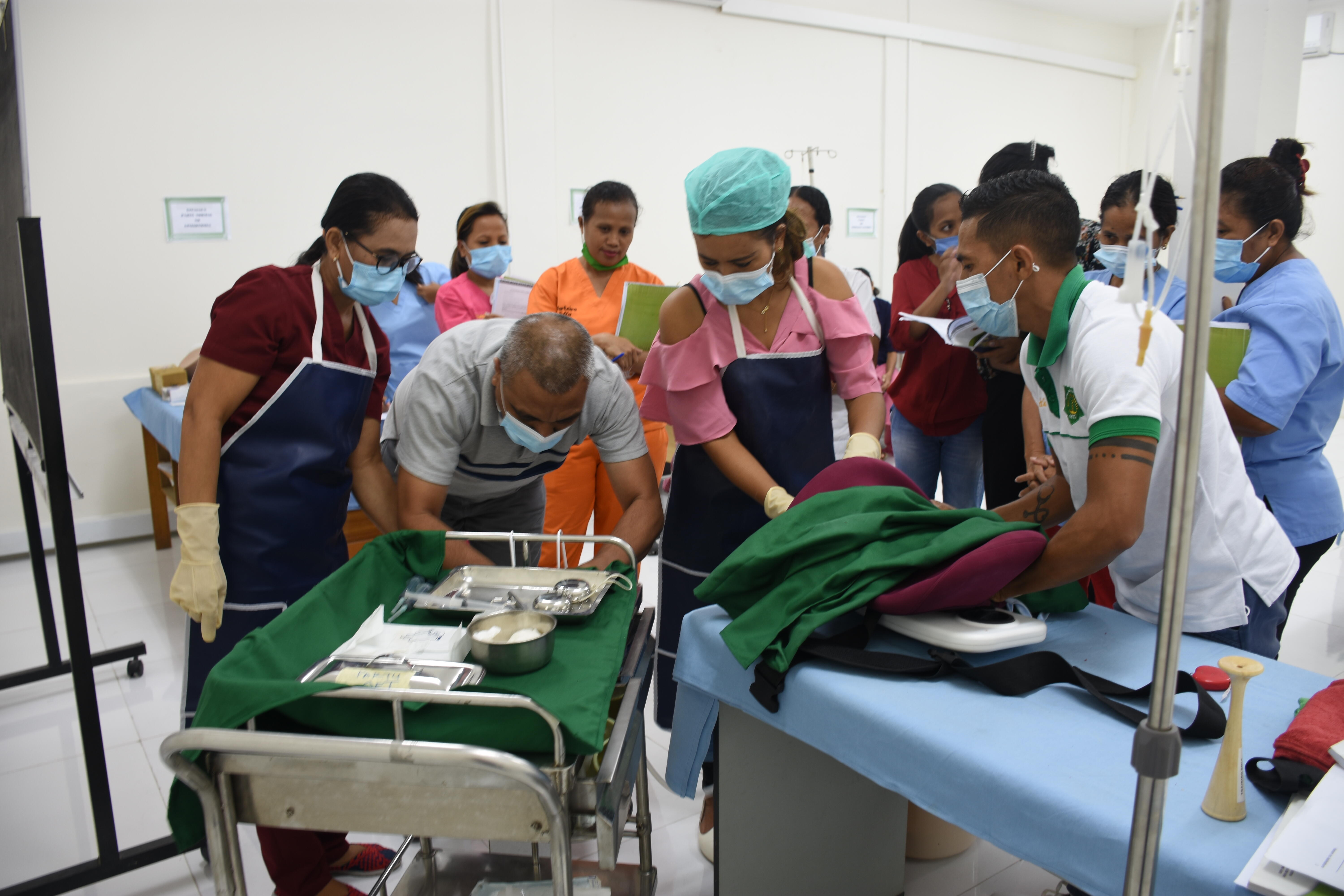Amidst COVID-19 pandemic, interruptions in healthcare systems has become common place in Timor-Leste, particularly in two municipalities currently under lockdown since mid February (Covalima and Bobonaro), that share a comon border with Indonesia.
Although the number of new infections in the Southeastern Asia nation are relatively low, --compared to neighbouring countries -- there is a growing concern of rapid increase of local COVID-19 transmisions.
As quoted in the local media recently, Dr Rui Maria de Araújo, Coordinator of Integrated Center of COVID-19 in Timor-Leste, said six new infections of COVID-19 reported in the country on February 25 were traced to local transmissions after performing swab tests to communities living near the border.
Delfina Pereira, a midwife from Manufahi Municipality, appealed to the government and international organizations to support midwives with facilities to improve their working conditions.
Stella Amaral, a midwife from Bobonaro Municipality, observed that midwives from the municipalities are at high risk because they are the first point of contact with expectant mothers.
“We lack necessary facilities and sufficient personal protective equipments (PPE’s) to protect us during delivery and caring of expectant mothers despite growing number cases of COVID-19 in the municipalities which puts our lives and those of expectant mothers at greater risk of contracting the virus. We only have gloves and masks at Maliana Referral Hospital and work without PPE’s,” said Stella.
During COVID-19 midwives do not only grapple with providing care to expectant mothers but also preventing or minimising risk of transmissions before, during or after birth.
Despite the challenge of working under restricted conditions due to COVID-19 pandemic, UNFPA is committed to working closely with the Ministry of Health to support the implementation of National Reproductive Health Commodity Security Strategy through building the capacity of health-service providers to provide high-quality, rights-based integrated sexual and reproductive health services to all.
Similarly, UNFPA is dedicated to building capacity of midwifery schools in Timor-Leste to provide high-quality pre-service midwifery education including training on the Minimum Initial Services Package (MISP) to mitigate effects of disasters like COVID-19 that might strain the health system.


